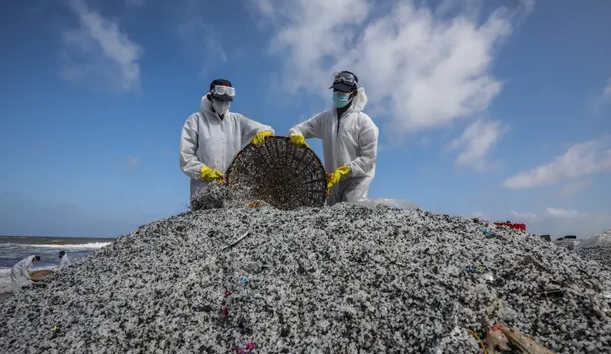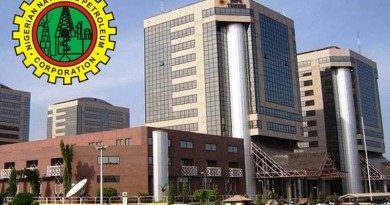Tackling the health impacts of plastic pollution in Africa
Over 400 million tons of plastic are generated globally each year, with an estimated 19-23 million tons ending up in lakes, rivers, and seas. However, fewer than 10% of global plastic manufacturing is recycled each year. Growing population and urbanization are causing an increase in single-use plastic in Africa, which generates only 5% and consumes 4% of global plastic, worsening environmental pollution and health hazards.
Since the signing of the Libreville Declaration on Health and Environment in 2008, the World Health Organization (WHO) Regional Office for Africa and the United Nations Environment Programme (UNEP) have partnered to catalyze national efforts to decrease environmental hazards to health. Since then, they have collaborated on a number of projects, including the Clim-HEALTH Africa project, which aims to predict, prevent, and manage the acute public health effects of climate change in Africa, and the CHEMOBS project, which developed a prototype for an integrated national health and environment observatory on chemical risks to human health and the environment.
This year’s World Environment Day has the theme “Solutions to Plastic Pollution.” UNEP Regional Coordinator for Chemicals, Waste, and Air Quality, Alexander Mangwiro, outlines the problem of plastic pollution and how it might be tackled.
What are the health consequences of plastic pollution in Africa?
Plastic pollution has a wide range of negative health consequences in Africa, harming both human populations and ecosystems. Plastic trash, especially single-use plastics and microplastics, has the potential to contaminate freshwater sources such as rivers, lakes, and groundwater. This contamination can result in the consumption of microplastics via polluted drinking water, thus posing health hazards. Plastic can also wind up in the food chain. Plastic, for example, in our seas degrades into smaller bits known as microplastics, which are consumed by marine life. When humans consume microplastic-contaminated seafood, there is a risk of microplastic translocation up the food chain, which might have serious health repercussions. Toxic chemicals in plastics can seep into the environment and even enter the food chain. Prolonged exposure to these substances, especially through the intake of polluted food or water, can have negative health consequences such as endocrine disruption, developmental difficulties, and an increased risk of cancer.
In many African cities and villages, incorrect plastic garbage disposal can produce breeding grounds for disease-carrying mosquitoes. Furthermore, the burning of plastic garbage, which is popular in several African countries, emits dangerous pollutants into the air, including poisonous chemicals and particulate matter. These contaminants, when inhaled, can induce respiratory issues, aggravate existing respiratory illnesses, and contribute to air pollution-related diseases. There is hardly little plastic treatment infrastructure on the continent. Plastic waste will most likely impair soil porosity to the point of disrupting the water resource regeneration cycle and lowering soil quality for agricultural use.
As a result, plastic pollution has significant environmental and socioeconomic repercussions, including ecosystem damage. This can have an indirect influence on health by disrupting the balance of ecosystems that offer critical functions like water purification, carbon sequestration, and disease regulation, as well as undermining local economies and lives through food insecurity.
How can African countries address the health effects of plastic pollution?
Addressing the health implications of plastic pollution in Africa necessitates a holistic approach that includes improved waste management practices (centered on reduction, reuse, and recycling programs), public awareness campaigns, and regulatory interventions. It is possible to protect human health, maintain ecosystems, and create sustainable development in the region by reducing plastic pollution and encouraging sustainable alternatives.
Many African countries have demonstrated a significant commitment to combating plastic pollution, particularly through making progress in reducing plastic trash. Single-use plastic bags are now prohibited in around 30 African countries. However, the effectiveness of regulations on plastic production, consumption, and waste management must be enhanced because capacity and methods for monitoring and evaluating these solutions are either in the early stages or non-existent. We expect that the United Nations Treaty on Plastic Pollution, which was considered last week in Paris and is set to be finalized and adopted in 2024, will aid in the establishment and implementation of national and regional policies.
What solutions to plastic pollution does the pact propose?
The United Nations Treaty on Plastic Pollution intends to solve the global catastrophe of plastic pollution and to develop a comprehensive framework to manage its environmental and human health implications. While the treaty is still being drafted, we expect it will contribute in the strengthening of waste management systems, the expansion of financial aid, technology transfer, and capacity-building activities, particularly in developing nations. It also intends to improve plastic pollution management capacities and increase international cooperation and collaboration among states, including the sharing of best practices, scientific knowledge, and technologies to tackle plastic pollution effectively. The overarching goal is to enhance people’s health, safeguard the environment, and create more environmentally sustainable economies.




